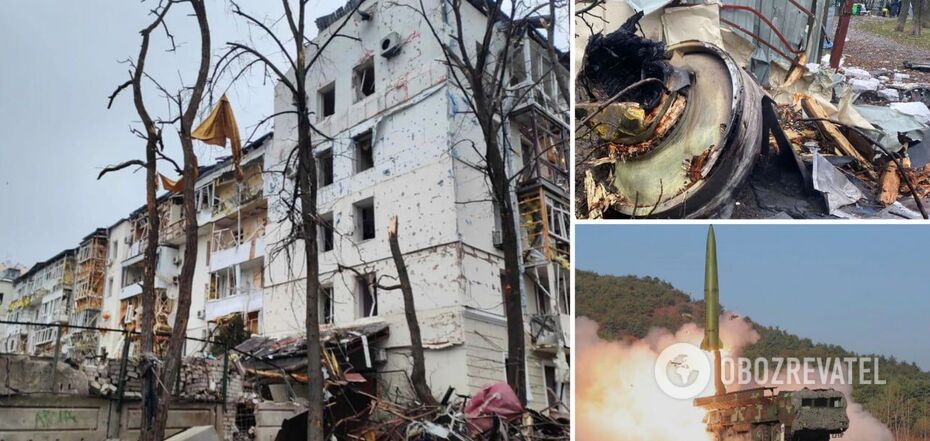War in Ukraine
UN recognizes that Russia fired a North Korean ballistic missile at Kharkiv: what kind of attack is it?
The debris from the missile that fell in Kharkiv on January 2, 2024, belonged to a North Korean Hwasong-11 ballistic missile. This is a violation of the arms embargo on the DPRK.
This is reported by Reuters with reference to the report of the UN sanctions monitors for the Security Council Committee. In their 32-page report, UN experts who arrived in Ukraine in early April to inspect the wreckage came to this conclusion.
North Korea has been under UN sanctions over its ballistic missiles and nuclear program since 2006, and these measures have been tightened over the years. The three observers found no evidence that the missile was manufactured by Russia. They "could not independently determine where the missile was launched from and by whom."
"The trajectory information provided by the Ukrainian authorities indicates that the missile was launched from the territory of the Russian Federation," the report says. According to the experts, this would mean that the Russians purchased North Korean weapons.
They also added that this would be a violation of the arms embargo imposed on the DPRK in 2006. In addition, the missions of Russia and North Korea to the UN in New York did not respond to requests for comment on the sanctions observers' report.
The United States and others have accused North Korea of transferring weapons to Russia for use against Ukraine. Both Moscow and Pyongyang denied the accusations, but last year promised to deepen military relations.
It is worth recalling that in February 2024, at a meeting of the UN Security Council, the United States accused Russia of at least nine ballistic missile launches against Ukraine provided by the DPRK. UN observers said that Hwasong-11 ballistic missiles were first publicly tested by Pyongyang in 2019.
Last month, Russia vetoed the annual renewal of the UN sanctions monitors, known as the Panel of Experts, who have been monitoring compliance with the organization's sanctions on North Korea over its nuclear and ballistic missile programs for 15 years. It should be noted that the mandate of the current panel of experts expires on Tuesday, May 1, 2024.
A few days after the attack on the city on January 2, 2024, the Kharkiv regional prosecutor's office showed the media fragments of the missile, saying that it was different from Russian models. Law enforcement officials also added that "it could be a missile supplied by North Korea."
As reported by OBOZ.UA, according to monitoring channels, the first entries of three Tu-95MS planes into the Caspian region of the Russian Federation were recorded at 05:00 on Tuesday, April 2. An additional nine similar aircraft were also reported to have taken off from the Engels airfield. Some time later, four Tu-22M3s took off from Shaykivka. It was noted that there were 21 Russian bombers in the air. At about 05:40, the occupiers launched the first Kh-101/555/55 missiles from the Caspian Sea.
Kyiv and Kharkiv came under fire. In both cities, 5 people were killed and at least 130 were injured. More than 250 civilian objects were damaged. According to the Ukrainian Air Force, the aggressor country attacked the cities with Kh-47M2 Kinzhal aerial ballistic missiles.
Only verified information on our Telegram channel Obozrevatel and Viber. Do not fall for fakes!



























